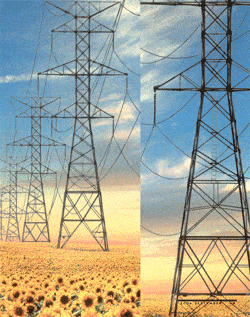The Energy Issue

|
|
|
Recent events have transformed the way the world views its energy supplies. With startling rapidity, energy security has become a tremendously important strategic issue. Corporations and national governments alike are hurriedly drawing up plans to ensure they can meet their future energy needs. Alliances are forming between erstwhile rivalswitness India and China agreeing not to compete in their quest for energy suppliesand ferocious rows are breaking out between allies and friends.
The jostling among net consumers and net producers of energy is symptomatic of a fundamental shift in the established balance of power in the world. Russia, for example, which frightened the living daylights out of many Western European leaders early this year when it cut off gas supplies to Ukraine, has emerged once again as a leading global power. President Vladimir Putin makes no secret of his intention to use Russias wealth of resources to reinforce his role on the world stage.
Venezuela and Bolivia have both recently sent shockwaves through the industrialized world by trumpeting the fact that they, too, are perfectly prepared to use their immense reserves of energy as a political tool.
To bolster their supplies, the big consumers, such as China, India and the United States, are having to make friends with some regimes they might otherwise keep at arms length. At the same time, the unremitting and seemingly escalating conflict in the Middle East is having a ratchet effect on oil prices, which nudged toward a record $80-per-barrel as the bombs began raining down on Lebanon in mid-July.
While few observers have yet begun using the word crisis, there are plenty of signs that that is, indeed, what is developing. Demand for energy is not yet outstripping supply, and even as some of the older sources of oil begin to dry up, new reserves are being discovered and viable alternatives to fossil fuels are emerging to take their place. But those new energy sources alone wont necessarily solve the worlds problems. Biofuels, for example, which enjoyed a dramatic boost in credibility following US president George W. Bushs acknowledgement of Americas addiction to oil, may cause as many problems as they solve. Aside from being a relatively inefficient fuel source, they have to be grown somewhereand that means other crops are being displaced to make room for them. Americans, the worlds most enthusiastic energy users, are discovering that making room for ethanol-producing crops is beginning to bump up the price of their breakfast cereals as soaring demand for biofuels prompts farmers to turn over their fields for ethanol production, leaving less land available to grow wheat.
Other alternatives to carbon-based fuels are becoming more widely available, and with half an eye on the worlds dwindling oil reserves, investors are finally beginning to pour in serious amounts of funding for development of these new technologies (see page 20). So great, in fact, was the rush to invest earlier this year that the alternative energy sector looked set to become the next dot-com-type boom.
The impact of the energy crunch on corporations worldwide has been dramatic. Oil companies, for example, have been posting eye-popping profit figures in the past few months and have suddenly discovered, at least in the US, that they are not just doing business; they are performing a patriotic service by sucking oil out of the ground. For the big consumers of fossil fuels, however, things are not looking so cheerful. As more and more evidence piles up confirming the link between rapacious energy consumption and global climate change, anxious investors are already asking them to quantify their energy and environmental risks (see page 28). Many companies are facing growing regulatory pressure to cut their energy consumption (see page 26), but they are also finding that responding to the pressure can help boost their financial performance.
They key for corporations is to make plans now that will help them prosper in such an uncertain future. Until now it has been easier to turn a blind eye to impending challenges. But now the only option is to tackle them head on.
Dan Keeler



